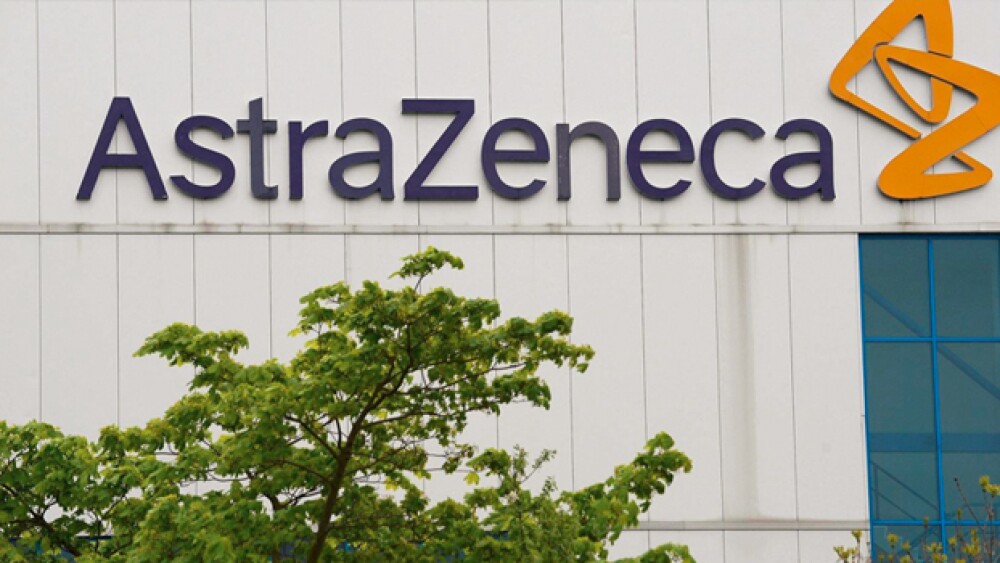AstraZeneca is attempting to find encouraging news in the failure of its MYSTIC clinical trial, but it doesn’t look good.
AstraZeneca is attempting to find encouraging news in the failure of its MYSTIC clinical trial, but it doesn’t look good.
The company announced that the Phase III MYSTIC trial of Imfinzi (durvalumab) alone and in combination with tremelimumab compared to standard-of-care (SoC) platinum-based chemotherapy in previously-untreated patients with Stage IV non-small cell lung cancer (NSCLC) failed to meet its primary endpoint.
The drug alone and in combination was being compared to SoC but failed to improve on overall survival (OS) over SoC. The drug failed a clinical trial last year in a combination trial with tremelimumab in lung cancer, where the primary endpoint was progression-free survival. At that time the company was encouraging investors to have patience. In today’s announcement, they had to concede that the combination of Imfinzi with tremelimumab performed worse than Imfinzi alone for the overall survival endpoint in this patient population.
MYSTIC was looking at stage IV patients, the most advanced form of the cancer. The drug alone and in combination didn’t improve OS compared to chemotherapy in patients who had at least 25 percent or more of PD-L1 on their cancer cells.
Imfinzi has been approved for stage III lung cancer in more than 40 countries. In earlier trials, it cut the risk of death by almost a third in that population of patients.
Despite the failure in the MYSTIC trial, the company is trying to put a positive spin on it, suggesting that the data supported more analysis in exploratory subgroups.
Sean Bohen, executive vice president, Global Medicines Development and chief medical officer, stated, “We are encouraged to see that Imfinzi monotherapy activity is in-line with that of the anti-PD-1 class in previously-untreated patients with Stage IV non-small cell lung cancer; however, we are disappointed that these results missed statistical significance. We remain confident in Imfinzi as the cornerstone of our IO program and continue to evaluate its potential in ongoing non-small cell lung cancer trials, including Imfinzi and Imfinzi plus tremelimumab in combination with chemotherapy.”
The company has additional trials ongoing in Stage IV, first-line NSCLC. They include PEARL, which is evaluating Imfinzi monotherapy compared to SoC chemotherapy; NEPTUNE, comparing Imfinzi and tremelimumab to SoC chemotherapy; and POSEIDON, evaluating Imfinzi and chemotherapy or Imfinzi plus tremelimumab and chemotherapy to SoC chemotherapy.
The company’s recent third-quarter financials were strong, particularly in the oncology market, which showed an increase of 56 percent in the quarter. China sales grew 32 percent and U.S. sales grew 25 percent. Overall product sales for the year-to-date grew 4 percent, with overall product sales growing 8 percent for the quarter. Most of the growth was driven by new drugs.
For the quarter, Imfinzi sales were $371 million, largely reflecting various launches for unresectable, Stage III NSCLC. A bigger area of growth in oncology was Tagrisso, with a sales increase for the quarter of 104 percent to $506 million, and year-to-date sales of $1.266 billion.
At the time, Pascal Soriot, chief executive officer, stated, “Today marks an important day for the future of AstraZeneca, with the performance in the quarter and year to date showing what we expect will be the start of a period of sustained growth for years to come. Commercial execution has been exceptional and our new medicines are now firmly established as the drivers of growth, supporting our continued success in Emerging Markets.”





